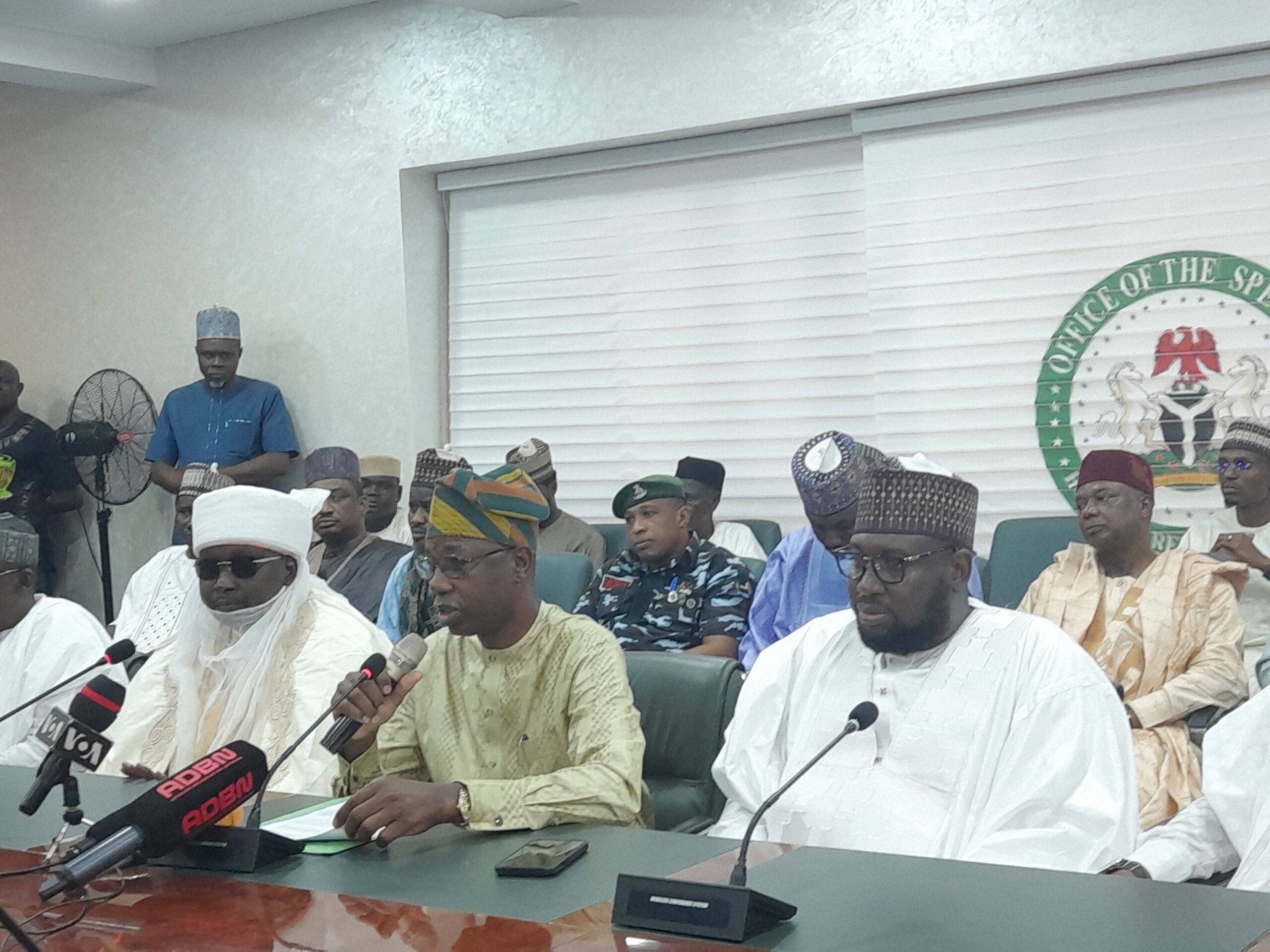News
SANs List Expectations As S’Court Justices Rise To 21

The Chief Justice of Nigeria, Justice Olukayode Ariwoola, on Monday, swore in 11 new Justices of the Supreme Court, bringing the number of Justices on the apex court bench to 21.
The development was hailed by Senior Advocates of Nigeria, who expressed the hope that it would translate to the clearing of the huge backlog of cases at the Supreme Court.
The swearing-in of the 11 Justices comes over two months after they were screened and confirmed by the Senate, acting on the recommendation of President Bola Tinubu.
Before now the number of Justices on the Supreme Court bench went down to an all-time low of 10, as opposed to 21 recommended by the Constitution.
The appointment of an additional 11 Justices, giving the Supreme Court its full complement of Justices, followed agitations and calls from several quarters on the declining manpower at the apex court.
At the swearing-in, which took place at the Main Courtroom of the Supreme Court in Abuja on Monday, the CJN noted that the 11 new Justices were joining the apex court bench “at a time when the rank had been grossly depleted to an all-time low of 10 Justices for a number of reasons, mainly retirement, and deaths.”
“The inability of the court to meet up the statutory full compliment of 21 Justices had lingered on for too long,” the CJN remarked.
Speaking with The PUNCH, a former Attorney General of Abia State, Chief Awa Kalu (SAN), said with the Supreme Court now having its full complement of Justices, “we expect them to crack down on the backlog of cases in that court. That is the expectation of everybody, and it is a legitimate expectation.”
Similarly, human rights lawyer, Mr Ebun-Olu Adegboruwa (SAN), said, “It is commendable that we have 21 Justices, but I believe it goes just beyond numbers.”
Adegboruwa said the appointment of the 21 Justices must be complemented with the provision of necessary equipment that would aid justice delivery at the apex court.
He said, “It’s important that there is a paradigm shift that will focus on equipping the Justices with the needed infrastructure and personnel to perform.
“Then limit the number of interlocutory appeals that go to the Supreme Court so that it can properly focus on policy decisions that will give a guideline on serious legal matters.
“Then the quality of the judgment. To avoid matters in which we have conflicting judgments, there’s a need for the Supreme Court to sit down and to exert its previous decisions with the purpose of harmonising seemingly contradictory views that have been expressed by the apex court.”
Meanwhile, the CJN, at the swearing-in of the Justices, charged them to brace up for the work ahead and to be prepared to face criticisms from the public.
He said they must discharge their duty in fairness and uprightness, knowing that they were representatives of God on earth.
Justice Ariwoola said, “See yourselves as the representatives of God on earth because any judgment given at this level can only be overturned in heaven.
“There is no way you can please human beings, especially litigants. The easiest way to fail in life is by trying to please everyone. The only deity you can fear is the Almighty God. Once your judgment is in consonance with what God expects from you, and is also in accordance with the Constitution, you should consider yourself the happiest and freest person on earth.”
The CJN also cautioned the Justices against allowing their ambition to cloud their sense of judgment.
“Your moral uprightness, integrity, and respect for the constitution and other extant laws in operation must be unwavering and unassailable,” he added.
The new Supreme Court Justices are Justices
Jummai Sankey, Chidiebere Uwa, Chioma Nwosu-Iheme, Haruna Simon Tsammani, Moore Adumein, Obande Ogbuinya, and Stephen Adah.
Others are Habeeb Abiru, Jamilu Tukur, Abubakar Umar, and Mohammed Idris.
News
Finally, IGP approves hunger protests across Nigeria

The Nigerian police has finally approved the planned nationwide protests and outlined conditions for participants.
The Inspector General of Police, Kayode Egbetokun, revealed this on Friday while addressing journalists in Abuja.
He urged all groups planning to participate in the proposed nationwide protest to submit their details to the Commissioners of Police in their respective states.
The police boss said this was to ensure the protest was peaceful.
Egbetokun said, “We acknowledge the constitutional right of Nigerian citizens to peaceful assembly and protest.
“However, in the interest of public safety and order, we urge all groups planning to protest to provide necessary details to the Commissioner of Police in the state where the protest is intended to take place.
“To facilitate a successful and incident-free protest, they should please provide the following information: state the proposed protest routes and assembly points; expected duration of the protest; and names and contact details of protest leaders and organisers.”
The police boss said the information expected from the organisers also include measures to prevent hijacking by criminal elements, as well as key identifiers for possible isolation of potential troublemakers.
By providing the information, he said, the police will be able to deploy adequate personnel and resources to ensure public safety.
He said the police needed to know the specific routes and areas for the protest to avoid conflicts with other events or activities.
Mr Egbetokun said the police will “establish clear communication channels with protest leaders to address any concerns or issues that may arise; minimise the risk of violence, property damage, or other criminal activity.
“We encourage all protesters to cooperate with the police, obey the law, and adhere to global best practices for peaceful assembly to guarantee a safe and successful exercise of their rights.
News
Reps North-West Caucus Beg Youths, Citizens In The Region Not To Join Planned Protest

News
Reps Applaud FCT Minister, Wike On AICL Improved Revenue, Infrastructure

-

 News23 hours ago
News23 hours agoIwuanyanwu was a Heavyweight in all ramifications-Abaribe
-

 News22 hours ago
News22 hours agoTinubu, Southern Govs Mourn Iwuanyanwu
-

 News21 hours ago
News21 hours agoSokoto Governor, Aliyu’s Wife Holds Lavish Birthday As Guests Spray Dollar Notes On Her Amid Hunger, Hardship
-

 News21 hours ago
News21 hours agoProtest: President Tinubu In Closed-door Meeting With Traditional Rulers (Video)
-

 News23 hours ago
News23 hours agoTinubu’s Presidency Is Failing Nigerians – Afenifere
-

 News18 hours ago
News18 hours agoNationwide protest: ‘Airport Is Filled Up, Govs, Senators, Reps, Ministers Traveling Abroad’ — Fayose
-

 News23 hours ago
News23 hours agoIGP Orders DPOs, Their Men To Storm Vulcanizer Shops Ahead Of Planned Nationwide Protest
-

 Metro22 hours ago
Metro22 hours ago8 School Children Rescued In Lokoja Auto Crash







